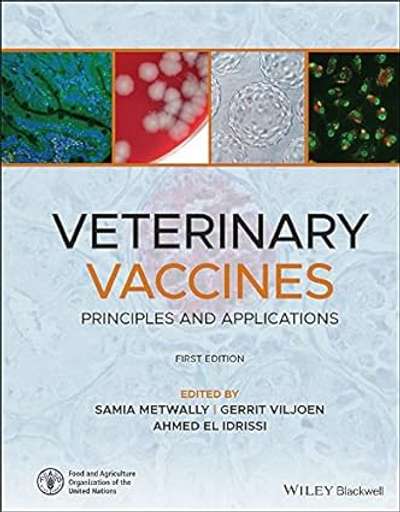Veterinary Vaccines
Metwally, S. (ed.); Viljoen, G. (ed.); El Idrissi, A. (ed.);

For centuries, vaccinating animals has been the most cost‐ effective and sustainable measure to prevent and control infectious emerging and reemerging diseases. A prominent example of the merit of vaccination practices in eliminating major infectious animal epizootics is that of rinderpest, which was declared to have been eradicated in 2011. Veterinary vaccines can also help protect the health of people from zoonotic diseases.
The proper use of a quality and effective vaccine provides significant benefits to stakeholders and food security, from the reduction in livestock mortality, increased milk production, savings by reducing antibiotic and acaricide treatments, and alleviating the impact of antimicrobial resistance. The effects of livestock vaccination provide a positive impact on rural, livestock‐dependent families, contributing to reducing poverty at the household level and in turn help us achieve the core mandate of the Food and Agriculture Organization of the United Nations and many of the Sustainable Development Goals.
Detail Penerbitan
- Terbit: 2021
- Penerbit: FAO
- ISBN-13: 9781119506270
- Dewey Decimal: 636.089